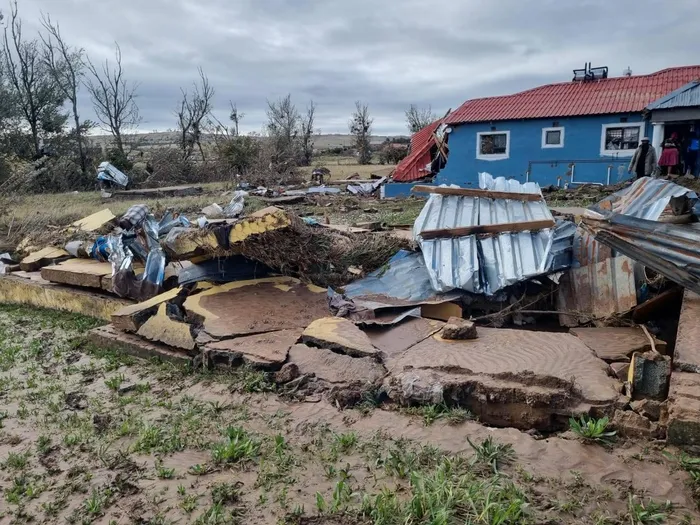CoGTA's new strategies to combat flood risks and save lives

More than 100 people died in the Eastern Cape following heavy rains and flooding in June.
Image: OR Tambo District Municipality
To mitigate the risks of high death tolls and infrastructure failure in future flood events, the national Department of Cooperative Governance and Traditional Affairs (CoGTA) has considered and implemented several disaster management reforms.
These proposed reforms encompass a thorough review of the current disaster management system to reduce disaster risks, with a specific focus on decreasing fatalities and preventing infrastructure damage.
This was according to CoGTA Minister Velenkosini Hlabisa, when responding to a parliamentary question from the EFF’s Sixolisa Gcilishe.
Among other questions, Gcilishe wanted to know what disaster management reforms CoGTA has considered and/or implemented to reduce the risk of high death tolls and infrastructure failure in future flood events.
Hlabisa stated that the proposed disaster management reform entails a comprehensive review of the current disaster management system.
The aim is to reduce the risk of disasters in several key areas:
- Hlabisa said that reducing high death tolls will be achieved by enhancing the implementation of the Sendai Framework for Disaster Risk Reduction, which was established in 2015. The framework has specific targets, including a significant reduction in mortality rates by 2030.
“To meet these goals, new functions and structures focused on disaster risk reduction will be introduced.”
- Hlabisa said the reform will also focus on minimising infrastructure failures during future flood events. This will be done by adopting the “Building Back Better” approach for post-disaster recovery.
“This strategy aims to decrease vulnerability to future disasters and to build community resilience by addressing physical, social, environmental, and economic vulnerabilities and shocks. Implementing Disaster Risk Reduction measures, such as updated building codes and regulations, will ensure that we rebuild infrastructure to be stronger, safer, and more resilient to disasters,” Hlabisa said.
Another question from Gcilishe was how municipalities will be held accountable for approving and permitting the development of informal settlements and Reconstruction and Development Programme (RDP) housing in high-risk flood zones, particularly in areas prone to flooding.
Responding, Hlabisa explained that South African municipalities play a crucial role in land-use planning and development approval, as all proposed developments require municipal consent as the authority of first instance.
He said informal settlements are typically classified as unauthorised and developed with illegal structures. Consequently, municipalities must implement procedures to manage the establishment of such settlements. This process may involve collaboration with the Department of Human Settlements to formalise these areas under legislative and policy frameworks.
Hlabisa explained that when considering housing approvals in high-risk flood zones, as part of the municipal decision-making process, the municipality must ensure that all other statutory authorisations required under applicable planning legislation are obtained before granting approval for development.
“It is essential to seek clarification from the municipality regarding its adherence to legislative processes to confirm whether due diligence has been exercised in securing the required consents,” Hlabisa said.
“Any accountability measures should be guided by instances of non-compliance with the relevant legislation. Typically legislative processes that may influence development of housing in high-risk flood zones include, the Spatial Planning and Land Use Management Act (SPLUMA) 16 of 2013 is national framework to guide spatial planning and Land Use Management across National, Provincial and Local Government and the National Environmental Management Act (NEMA) 107 of 1998 requires that any development likely to impact the environment undergo environmental impact assessments and ensure these assessments are completed and considered before granting development permits.”
thobeka.ngema@inl.co.za